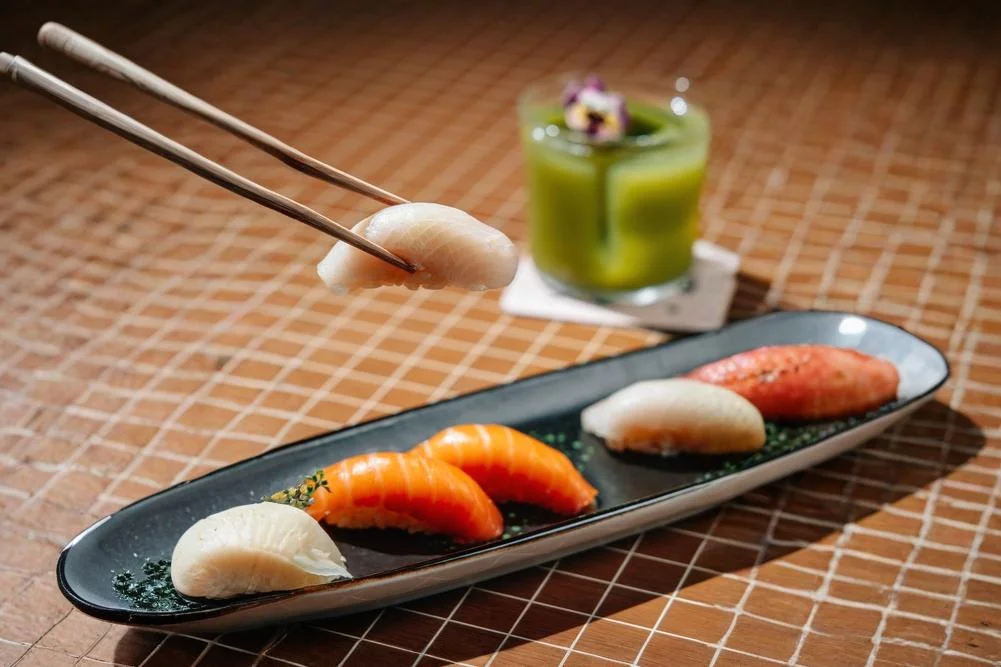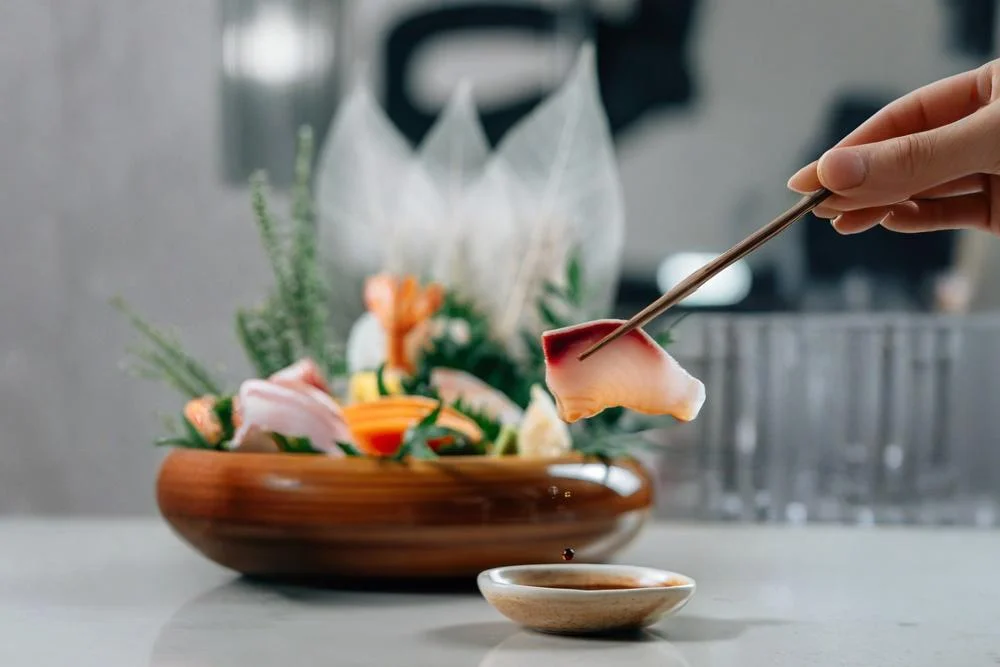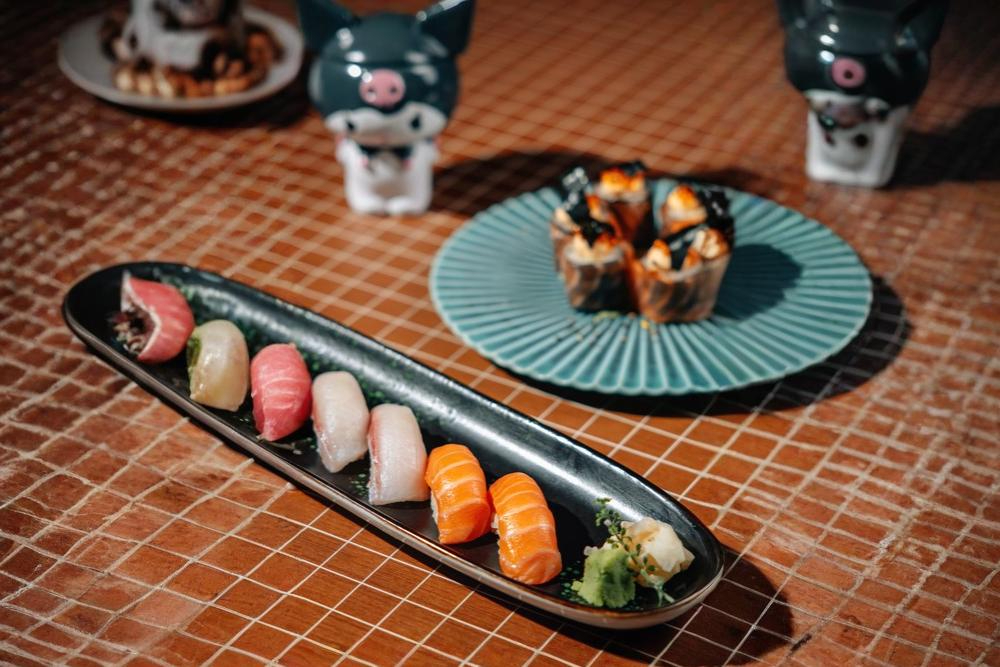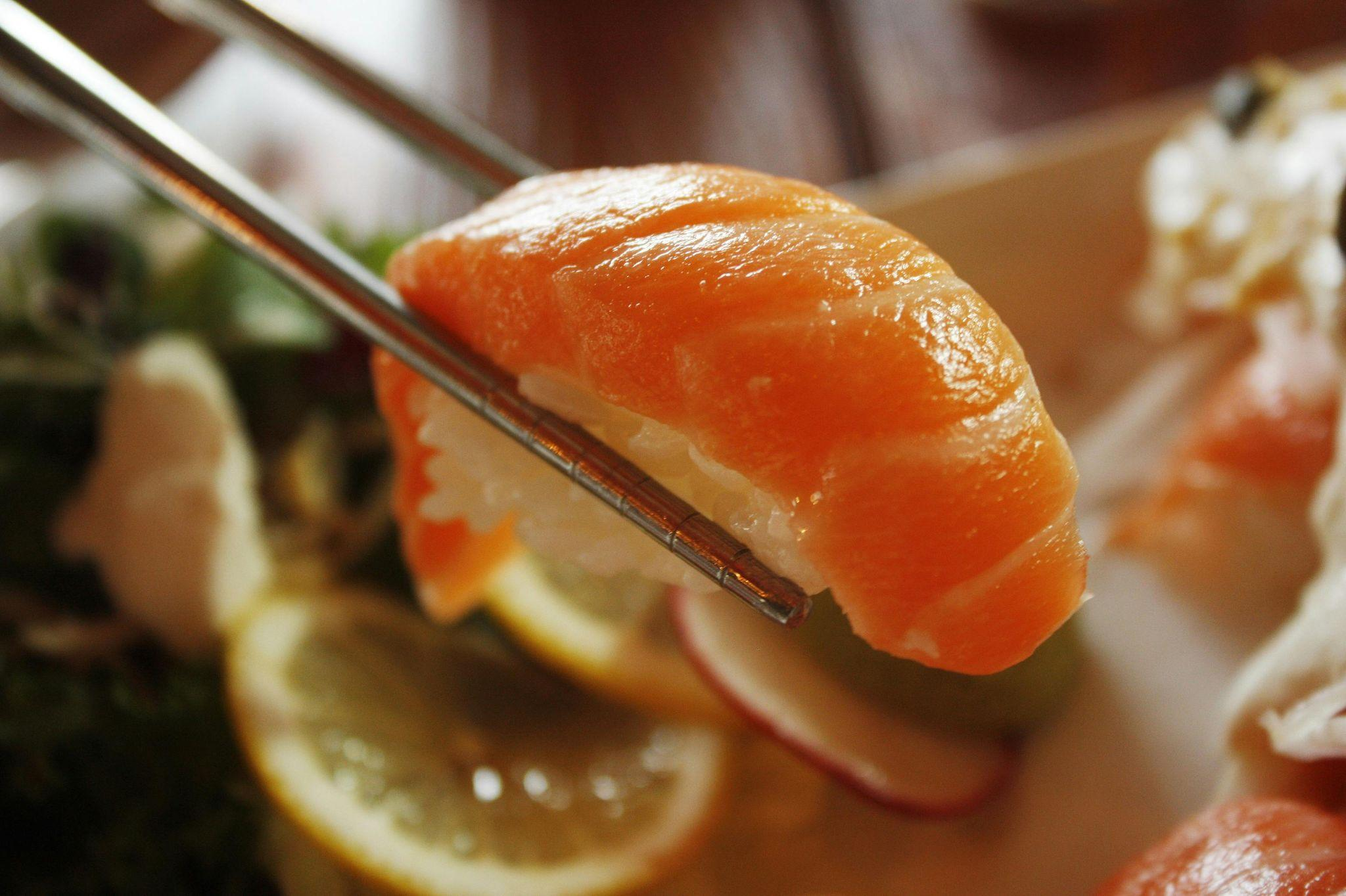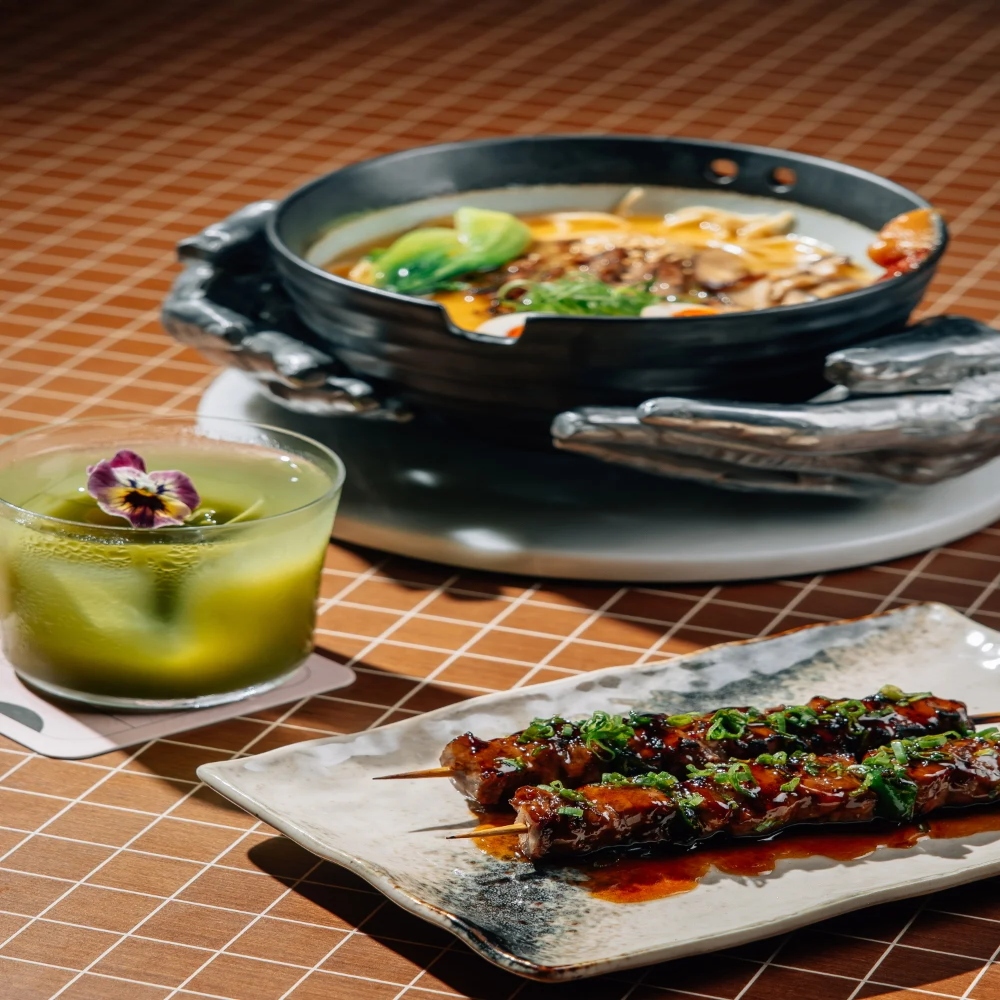At Ram & Roll at Kempinski The Boulevard in Downtown Dubai, understanding umami isn’t just a culinary curiosity—it’s the heartbeat of our modern Japanese dining experience. Often called the “fifth taste,” umami delivers a rounded, savory sensation that lingers on the palate and makes you crave that next bite. This guide unpacks what umami is, why it matters in Japanese cuisine, and how our chefs weave it into ramen, handrolls, sushi, and even Japanese-style breakfast—so you can taste with knowledge and enjoy with intention.
Key Takeaways:
- Umami is the fifth basic taste and underpins depth and satisfaction in Japanese cooking.
- Found in ingredients like kombu, katsuobushi, shiitake, soy sauce, and miso, umami builds layered, memorable flavors.
- At Ram & Roll, handcrafted techniques—slow-simmered broths, careful seasoning, and fresh-to-order sushi—showcase umami in every course.
What Is Umami—and Why Does It Matter?
Umami is the savory, mouth-filling taste created primarily by glutamates and certain nucleotides. First described in 1908 by the Japanese chemist Kikunae Ikeda, it’s distinct from sweet, sour, salty, and bitter, and it explains why some foods feel deeply satisfying even without overt sweetness or spice. In Japanese cuisine, umami serves as a subtle backbone: it doesn’t overwhelm; it enriches. When properly balanced, it elevates delicate ingredients, rounds sharp edges, and creates that “can’t-stop-eating” harmony across a meal.
Where Umami Comes From
Several naturally occurring compounds drive umami. Glutamate, an amino acid abundant in kombu (kelp), soy sauce, and miso, offers a smooth, savory base. Inosinate (IMP) and guanylate (GMP), found in katsuobushi (smoked, dried bonito) and shiitake mushrooms respectively, amplify glutamate’s effect. Combine these elements—say, kombu and katsuobushi in dashi—and you unlock synergy: flavors feel deeper, rounder, and more complete.
Dashi: The Essence of Japanese Flavor
Dashi is Japanese cuisine’s foundational broth and perhaps the clearest lens through which to understand umami. A classic ichiban dashi begins with cold-soaking kombu then gently heating it, before adding katsuobushi to infuse, strain, and serve. The result is a crystal-clear, savory stock that brightens everything from miso soup to nimono (simmered dishes). At Ram & Roll, we treat dashi with the same reverence we give to our ramen broths: clean extraction, careful timing, and absolute respect for the ingredients.
Umami in Ramen: Depth in Every Spoonful
Ramen is a masterclass in layered savory notes. Our broths are simmered for hours to draw out the richness of bones, aromatics, and umami-rich components. Whether you prefer a creamy tonkotsu, a bold spicy miso, or a balanced shoyu, each bowl is built to deliver resonance and length on the palate. The noodles—springy and resilient—are designed to carry broth without going limp, while toppings such as marinated egg, chashu, and shiitake concentrate and echo umami in every bite. Explore our full noodle selection and discover your favorite style on the Ram & Roll menu, or plan your visit to savor a steaming bowl of ramen in Dubai.
Umami in Sushi and Handrolls: Purity and Precision
In sushi, umami must be precise and transparent. Seasoned rice offers a gentle savory base, while fish provides natural glutamates and nucleotides that bloom with temperature and time. Nori adds a mineral-rich dimension; a brush of aged soy or a dab of miso brings gentle depth; and fresh wasabi contributes aromatic lift that never obscures the fish. Our handrolls are prepared fresh-to-order so the nori stays crisp and the rice retains its sheen. If you’re hungry for an elegant, immediacy-driven experience, browse our handrolls in Dubai or discover selections on our page for sushi in Dubai.
How Umami Enhances a Dish
Umami works like a conductor. It doesn’t drown out individual instruments; it synchronizes them so each voice is heard more clearly. In practice, that means:
- Greater flavor clarity: Vegetables taste more vibrant; proteins feel richer without heaviness.
- Better balance: Umami can soften bitterness, round acidity, and make salt taste more integrated.
- Lingering finish: Quality umami resonates after swallowing, encouraging a steady, thoughtful pace of eating.
Chefs can build this effect using complementary sources—kombu with katsuobushi, soy with shiitake, miso with roasted vegetables—then marrying them with textural contrast like crisp nori, silky tofu, and al dente noodles.
Key Ingredients That Deliver Umami
Kombu & Katsuobushi
Kombu contributes gentle sweetness and glutamate, while katsuobushi supplies smokiness and inosinate. Together, they become dashi—clean, savory, and endlessly adaptable.
Miso & Soy Sauce
Fermentation concentrates flavor and complexity. Aged soy provides salinity with depth; miso brings a rounded, soulful savor that enriches broths, glazes, and dressings without overwhelming delicacy.
Shiitake Mushrooms
Dried shiitake offer an earthy intensity and the nucleotide GMP, which enhances the savory impact of other ingredients. A simple soak and gentle simmer can transform a broth or tare.
Nori & Seafood
Nori adds oceanic nuance, while seafood—from tuna to salmon—naturally carries umami compounds that shine at the right temperature and seasoning level.
Balance: Umami With Sweet, Sour, Salty, and Bitter
Japanese cuisine is a study in harmony. Umami is balanced with mirin’s softness, rice vinegar’s brightness, the mineral edge of sea salt, and the subtle bitterness of sesame or greens. Consider grilled mackerel lacquered with a mirin-soy glaze and finished with a squeeze of yuzu; or miso-glazed eggplant paired with pickled ginger to keep richness in check. At Ram & Roll, this philosophy guides our Japanese dinner offerings, where each course feels complete yet leaves room for curiosity. For an evening that celebrates balance and depth, explore our Japanese dinner in Downtown Dubai.
Health and Satisfaction
Because umami increases perceived savoriness, it can help dishes feel satisfying without relying solely on salt. Many guests notice they feel content with measured seasoning and thoughtful portioning when umami is well-integrated. Ingredients like miso, shiitake, kombu, tomatoes, and aged cheeses (in broader culinary contexts) show how savory depth can be built through fermentation, careful cooking, and time—while keeping the palate energized rather than fatigued.
Craftsmanship at Ram & Roll
Our kitchen is built around patient technique and premium ingredients. Broths are given the time they deserve; rice is rinsed, rested, and seasoned with precision; fish is selected for quality and treated with restraint; and sauces are layered rather than rushed. The goal is not to chase intensity for its own sake but to craft resonance and clarity—gestures that make each bite feel deliberate. If you’re planning a visit, you can secure your table via our online reservation, or preview our full range of dishes and pairings on the menu page.
FAQs
Is umami the same as “savory”?
They’re closely related. “Savory” is a general descriptor for non-sweet flavors, while “umami” is a specific basic taste driven by glutamates and nucleotides that create a rounded, mouth-filling sensation.
How do you showcase umami in ramen?
We rely on slow-simmered broths, carefully calibrated tare, and toppings like marinated egg and chashu to build layers. Each element contributes its own savory note so the bowl feels complete from the first sip to the last.
What highlights umami in sushi and handrolls?
Temperature control, seasoning, and timing. Fresh-to-order handrolls preserve nori’s crispness; delicate brushes of soy or miso enhance the fish without masking it; and properly seasoned rice provides a gentle, savory base.
Can I experience umami at breakfast?
Absolutely. Japanese-style breakfast presents umami at its most elegant—think miso soup, dashi-infused vegetables, and lightly seasoned fish. We’re preparing a morning menu that celebrates this tradition for Dubai’s discerning diners. Learn more on our page for Japanese breakfast.
What should I try first if I’m new to umami?
Start with a classic bowl from our ramen selection or a fresh-to-order handroll. Both clearly express umami’s depth and finish, and our team is happy to recommend pairings from our Japanese beverages to complement your meal.
Plan Your Visit
As Ram & Roll prepares for its grand opening at Kempinski The Boulevard, we’re crafting a sanctuary for discerning diners where serenity meets indulgence. From the gentle elegance of dashi to the satisfying comfort of ramen and the precision of sushi, our kitchen celebrates umami through authenticity and artistry. Preview what awaits on our menu, explore refined evening options for Japanese dinner in Downtown Dubai, and book your seat through our reservation page—we look forward to welcoming you.


